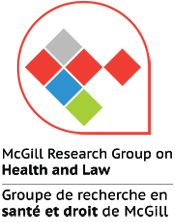The following courses may not all be offered every semester and their content is subject to change. For in-depth current descriptions, please refer the latest Course offerings on the Law Student Affairs Office site.
Regular Courses
Medical Liability
Trans-systemic and critical examination of medical liability issues, including doctor-hospital-patient relationship; medical duty of care; medical fault and causation; wrongful life, birth and conception; informed consent and refusal; lack of resources; defective products; nosocomial infections; contaminated blood transfusions; interaction between law and science; future of medical liability.
International Environmental Law and Politics
Examination of institutions and processes for global environmental protection. Consideration of means for advancing international cooperation for environmental protection, focusing on international law. Analysis of obstacles to applying international law to environmental problems. Examination of a range of governance structures for environmental protection and the way in which they operate.
International Law of Human Rights
International protection of human rights, particularly by the United Nations, its specialized agencies, and the Council of Europe.
Environment and the Law
Environmental law, with emphasis on ecological, economic, political, and international dimensions.
International Humanitarian Law
Rules governing international and internal armed conflicts; historical and philosophical foundations; constraints on means to wage war; treatment of protected individuals, including prisoners of war, civilians and peacekeepers; enforcement, including belligerent reprisals and criminal prosecution; links with norms protecting human rights, the environment and cultural property; impact of cultural diversity.
Droit des personnes
The existence and attributes of physical and legal persons in the Civil Law of Quebec. Modes of recognition of legal persons. Enjoyment and exercise of civil and personality rights; domicile; acts of civil status; capacity and regimes of supervised protection. Some introduction to rights under the Quebec and Canadian Charter. This course provides an opportunity for immersion in the culture, epistemology and practices of the Civil Law Tradition.
Droit des enfants
An examination of the law's recognition of, and responses to, children in Canadian private and public law, with reference to foreign and international law. Children's rights and state intervention in children's relationships with families and communities are explored, as are children as witnesses, parties and as young offenders.
Law and Psychiatry
The roles of lawyers and psychiatrists in the handling of the mentally ill within the legal process. Consideration of the civil commitment and criminal commitment processes, insanity and "automatism" defences, the psychiatrist as expert witness, mental illness as a problem in relation to legal capacity. Some sessions will be conducted jointly with members of the psychiatric profession.
Special Topics Courses
Public Health Law and Policy
Definition of public health and foundations of public health law. Examination of the power and duty of the state to protect the public’s health as well as the limits to state interventions pursuing the
common good. Exploration of challenges in public health law & policy. Consideration of tools available to public health policy-makers, including nudging, regulation, prohibition, and litigation.
Contemplation of the effectiveness of the criminal law and of private law in furthering public health goals. Introduction to public health notions of risk, causation, precaution, and proportionality, and
their interaction with legal norms. Analysis of specific case studies in public health law, including in such areas as infectious disease control and pandemic management, nutrition, tobacco, e-cigarettes
and cannabis.
Law and Health Care
The course explores various points of intersection between law and health care. Students will examine legal dilemmas that arise at these points of convergence and the principles and institutions that have been developed to address them. Particular topics covered may include: access and delivery of health care services and the allocation of health care resources; the regulation of health care professionals; the law of consent and substituted consent; the law pertaining to minors and incapable adults; introductory notions of public health law; privacy issues arising in the medical context; legal and ethical questions related to biomedical research; patient safety; and end of life care.
Disability Law
This course will introduce students to fundamental issues in disability law. We will start by asking “who is the ‘disabled subject’?”, “what is disability?”, and what expectations of “normalcy” are implicit in approaching some questions in the field. We will then critically examine legal concepts used in disability law and how they are interpreted (e.g. reasonable accommodation, equality, discrimination, dignity). We will also explore the difficulties that people with disabilities face in relation to access to justice, education and healthcare, as well as other controversial issues, such as political participation, sterilization, assisted dying, and socio-economic rights. We will draw from legal materials from different jurisdictions and from the inter-disciplinary field of disability studies to explore the evolving landscape of disability law and the challenges it continues to pose to law- and policy-makers.
Focus Weeks
Food Safety Governance in a Globalized World
Climate Change and Energy Law
Food Law
Fertility Law
This seminar focuses on core issues in the developing area of fertility law in Canada. It explores the role of technology in altering the fertility landscape–in particular, the role of assisted reproductive technology–as well as how state power, biopolitics, capitalism, and feminism inform fertility law. In addition, the seminar examines various discourses of reproductive rights and the ways in which state power facilitates, controls, and obstructs childbearing and family-building."
Other Related Courses
Patent Theory and Policy
Social Diversity and Law
Science Technology and Law
Human Rights & Cultural Diversity
Regulation Technology/Society
COVID-19 and Global Inequalities
Discrimination and the Law
Personal Injury Law

